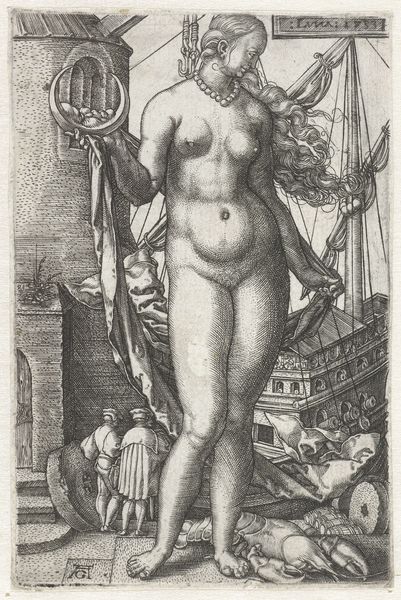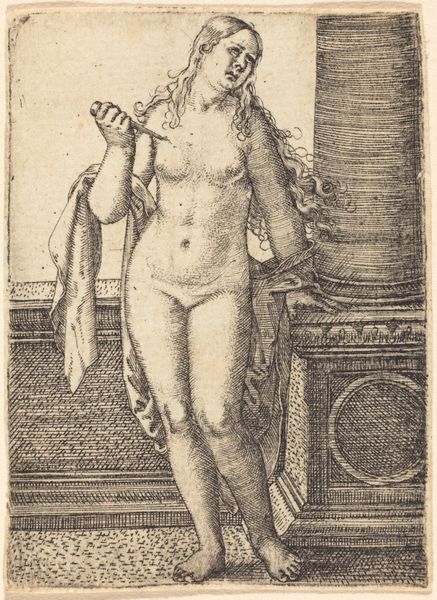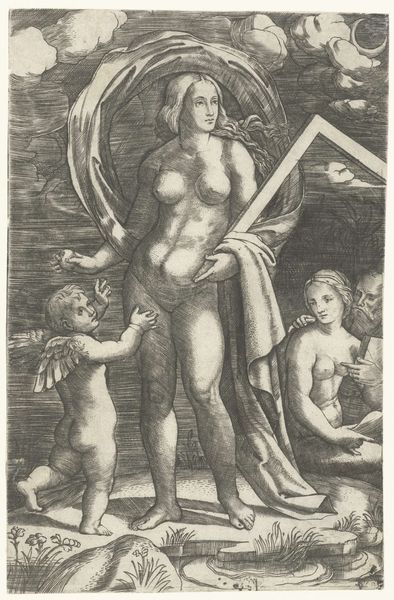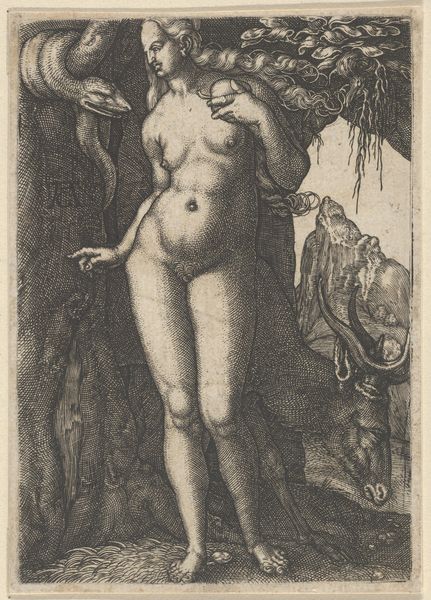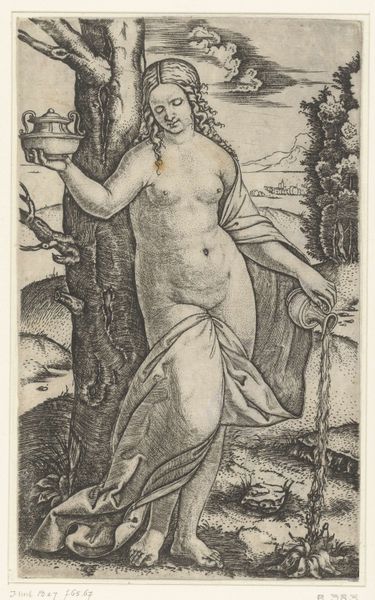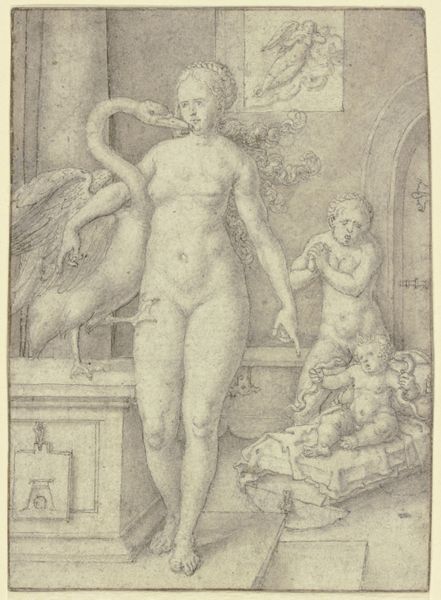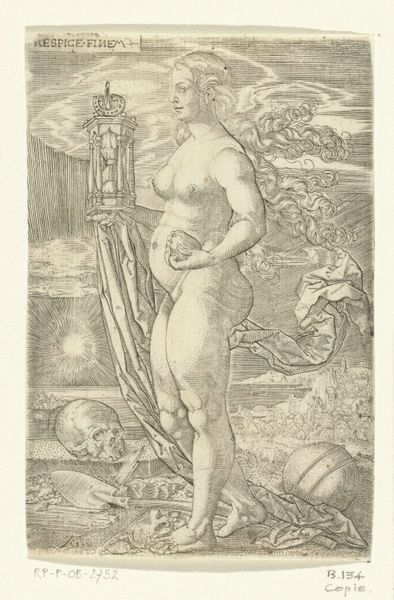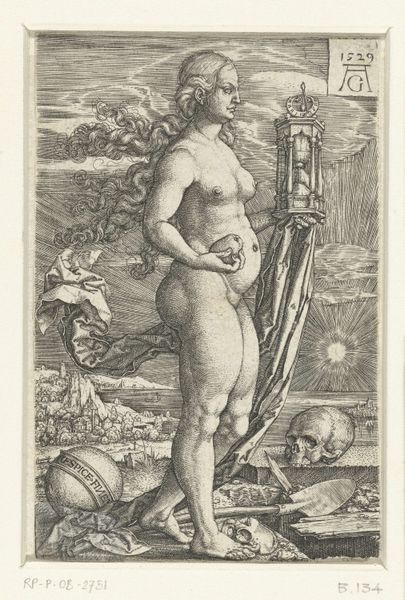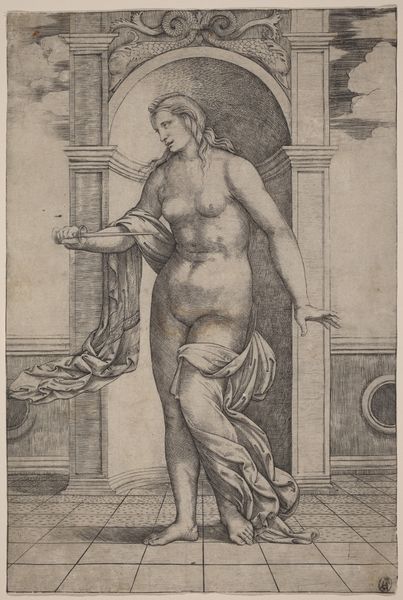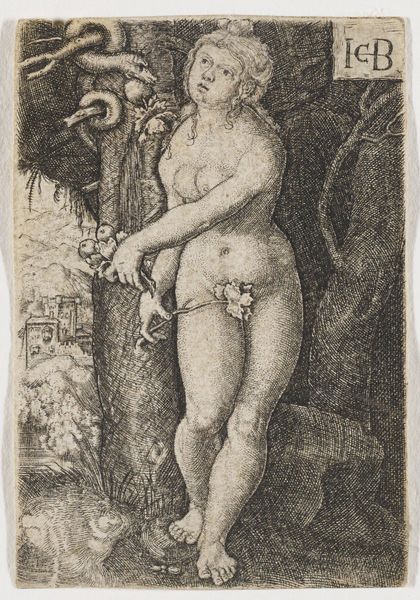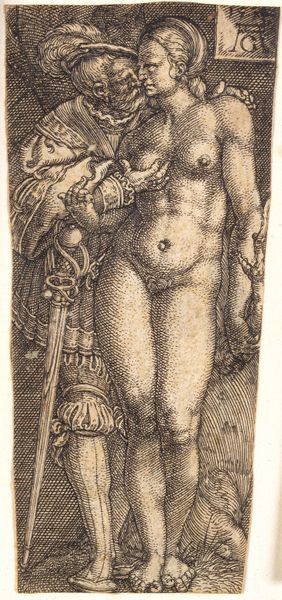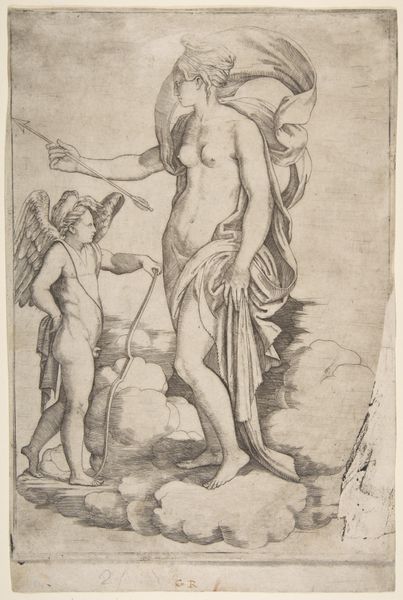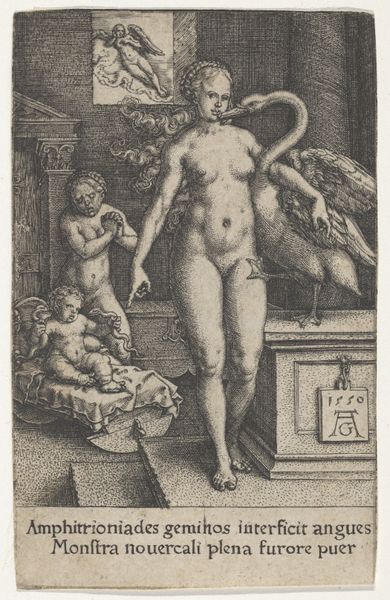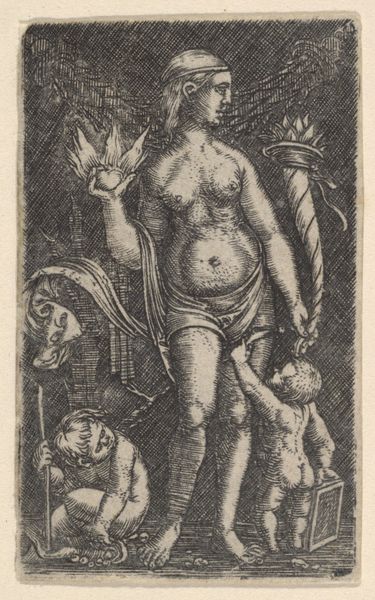
print, engraving
allegory
pen drawing
figuration
11_renaissance
northern-renaissance
nude
engraving
Copyright: National Gallery of Art: CC0 1.0
Heinrich Aldegrever made this engraving, Luna, in the 16th century. Engravings like this one were made by carving lines into a metal plate, inking the plate, and then using a press to transfer the ink onto paper. What's compelling about engraving is the way the labor of production becomes visible as detail. This print relies on a visual language of precision and detail, to create the goddess Luna and her symbols. Notice the texture of her hair, the folds of the cloth, or the minuscule details of the ship in the background. The artist's work involved the skillful manipulation of tools to achieve a precise design. Engravings were a popular form of art during the Renaissance, in part because of their reproducibility. This made art more accessible to a wider audience. So, in considering this work, remember that the labor and materials involved are not just about aesthetics. They are also about access, circulation, and the democratization of images.
Comments
No comments
Be the first to comment and join the conversation on the ultimate creative platform.
